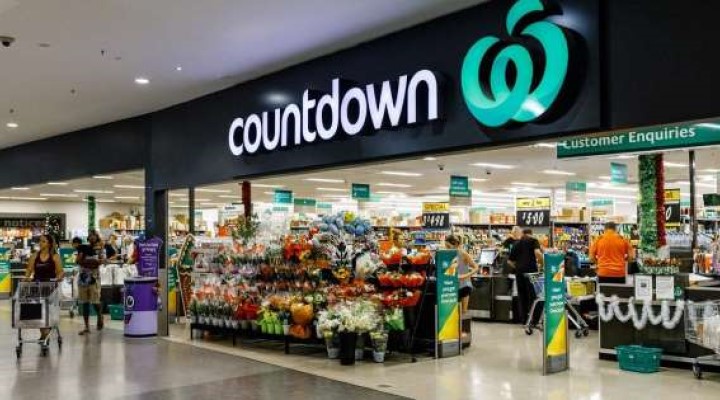New Zealand has an effective grocery retailing duopoly that is not serving consumers well, according to a preliminary report from competition regulator the Commerce Commission.
The commission said New Zealanders are paying too much for groceries compared to people in other international markets, the major two retail chains – the Woolworths-owned Countdown and the local co-operative Foodstuffs group – are stifling innovation and making persistently high profits in the absence of serious competition.
“Our preliminary view is that the core problem is the structure of the market. In competitive terms, the major retailers, Woolworths NZ and Foodstuffs, are a duopoly, and while there is an increasingly diverse fringe of other grocery retailers, they have a limited impact on competition,” said commission chair Anna Rawlings.
“This is because they are unable to compete with the major grocery retailers on price and product range in order to satisfy the widespread consumer demand for a main shop at a single store.”
Consumer NZ welcomed the preliminary findings and called for legislation to curb the chains’ dominance.
“With the supermarket trade carved up between them, the two big chains are in a cosy position and there are significant barriers to potential rivals establishing a presence,” said CEO Jon Duffy.
“That won’t change without regulatory intervention.”
Countdown issued a statement saying it needed time to read the report before making any detailed comment.
“We note this is only a draft report but on face value some of the options would have significant implications and we’ll need time to work this through and understand the impact,” the company said in a statement.
The commission’s draft report is now open for industry and public submissions and feedback, until August 26. A consultation conference will be held in Wellington from September 21-24 and the final report will be presented to the government in November.
Rawlings said in her statement that if grocery retailing competition was more effective, retailers would face stronger pressures to deliver the right prices, quality and range to satisfy a diverse range of consumer preferences.
“The major retailers appear to avoid competing strongly with each other, particularly on price. Meanwhile, competitors wanting to enter the market or expand face significant challenges, including a lack of competitively priced wholesale supply and a lack of suitable sites for large scale stores.”
The report concluded that the complexity of major retailers’ pricing strategies, promotions and loyalty programs confuse customers and make it difficult for them to make informed purchasing decisions.
Many food and grocery suppliers have little alternative but to supply the two major retailers, which allows the chains to use their purchasing power to “push excess risks, costs and uncertainty onto suppliers”.
“Suppliers report agreeing to these terms because they fear that otherwise their products may not be stocked. This conduct can reduce suppliers’ ability and incentives to invest and innovate, ultimately leading to less choice, lower quality, and potentially higher-priced goods for consumers,” the report said.
Rawlings said that without intervention, the commission sees little prospect of a new or expanding rival being able to constrain the major retailers effectively, and improve competition in the sector.
“We consider the best options for improving competition are those that enable an increase in the number of retailers directly competing against Foodstuffs and Woolworths NZ for a consumer’s main shop.”
To redress the balance, the commission is likely to make the following recommendations in its final report:
- Make it easier for new competitors to enter or existing independent retailers to expand by increasing wholesale access to a wide range of groceries at competitive prices.
- Make land more available through changes to planning laws and restrictions on the use of covenants.
“If these options were not feasible, had proved ineffective, or did not appear likely to improve retail competition within the desired timeframe, another potential option is to directly stimulate retail competition by creating a further major grocery retailer.”
Introducing an industry Code of Conduct and allowing suppliers to bargain collectively were two options to strengthen suppliers’ bargaining power with retailers, the report found.
Introducing mandatory unit pricing – and asking the major retailers to simplify their pricing and promotional practices – were options to help consumers make more informed purchasing decisions, and enhance competition.
“Our draft options encompass a range of possibilities and we look forward to now testing our draft findings and options for recommendations in coming weeks through public submissions and a consultation conference, before publishing our final report,” said Rawlings.
Consumer NZ’s Duffy said the report vindicated the organisation’s campaign for an enquiry into the $22 billion industry, which the government announced last November.
“We campaigned for an inquiry into the industry because our research showed there were major problems in this market that meant shoppers were paying too much,” he said.
Duffy said Consumer NZ strongly supported the proposal for a mandatory industry code of conduct.
“A mandatory code governing dealings between suppliers and supermarkets would help redress the imbalance in power between suppliers and the big chains,” Duffy said.
Consumer NZ’s research found seven out of 10 consumers felt supermarket “specials” had become so common they questioned whether the savings were genuine.






